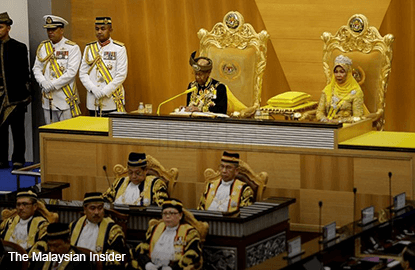
This article first appeared in The Edge Financial Daily, on October 5, 2015.
PUTRAJAYA: The Federal Constitution can only be amended by Parliament to include or remove words used by the framers of the national charter, the Court of Appeal said.
A three-man bench, which last Thursday declared that it is legal to punish peaceful rally organisers for failure to give a 10-day notice to the police, said the judiciary would have usurped the power of the legislature if allowed to perform such a function.
“We are mindful that the words used or not used by the framers of our constitution are not etched in stone.
“The constitution may be amended to include or remove or modify any word or words originally used or excluded by the framers. But surely, that is a task for Parliament,” said judges Tan Sri Raus Shaarif, Datuk Mohd Zawawi Salleh and Datuk Zamani A Rahim, who delivered a joint judgement last Thursday against the acquittal of Johor PKR executive secretary R Yuneswaran for unlawfully organising a “Blackout 505” rally in 2013.
In short, the judges said, the 1957 Merdeka constitution framers wanted Parliament to be the judge of what is “reasonable” to determine the limits to fundamental rights, not the courts.
The bench made the remarks in response to an argument during submission by lawyers for Yuneswaran that “criminalisation” of the restrictions limiting the right of peaceful assembly under Article 10(1)(b) was not “reasonable” and, therefore, unconstitutional.
Yuneswaran’s counsel relied on a 2010 Federal Court ruling that reasonable restriction should be read when interpreting Article 10 (freedom of speech, assembly and association).
That principle was adopted in the Nik Nazmi Nik Ahmad versus public prosecutors case by another Court of Appeal last year, which declared Section 9(5) of the Peaceful Assembly Act was unconstitutional.
The bench, led by Raus, said the provision of the article is clear and there is no necessity to read the word “reasonable” into that provision.
The judges, who referred to documents by the Reid Commission, said a drafter of the constitution, Justice Abdul Hamid of Pakistan, had opined that the word “reasonable”, wherever it occurs before the word “restrictions” in the three subclauses of Article 10, should be omitted.
Abdul Hamid said the right of freedom of speech, assembly and association had been guaranteed, subject to restrictions which may be imposed in the interests of security of the country, public order and morality.
Abdul Hamid’s opinion was followed.
“It, therefore, follows that the non-inclusion of the word ‘reasonable’ in Article 10 was not some oversight on the part of the Reid Commission,” the judges said.
The judges said the constitution’s framers did not want the word “reasonable” in Article 10 because they wanted to avoid a potential conflict between Parliament and courts.
“They wanted Parliament to be sure of the fate of the law, which they were enacting, and they wanted the laws of this country to be certain.” — The Malaysian Insider